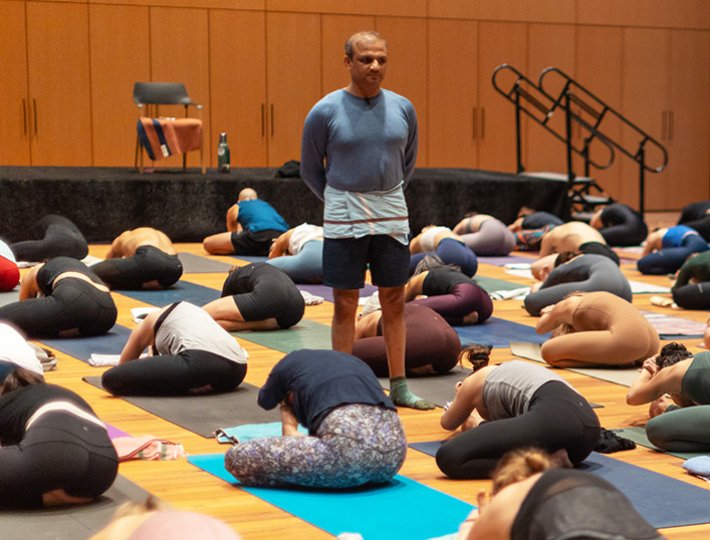You already know that fresh vegetables, fruits, and lean proteins come packed with vitamins and nutrients crucial for good health. But these wholesome edibles also support numerous biological processes related to sleep and functions your body carries out while at rest. Over the years scientific research has provided many fascinating insights into the complexities of rest. The study of relationships between diet, sleep, and weight is a newer, less explored area, but a handful of recent studies have identified some interesting connections.
A study published in the journal Appetite in 2013 conducted by University of Pennsylvania researchers examined correlations between diet and sleep duration in over 5,500 Americans that participated in the National Health and Nutrition Examination Survey (NHANES). Normal sleepers, defined as people who got seven to eight hours of sleep, ate the widest variety of foods, drank more tap water, and had diets with more theobromine, a plant chemical found in cocoa and chocolate, and dodecanoic acid, a saturated fatty acid.
People who had abnormally short or long sleep durations exhibited deficiencies in a few nutrients, including lycopene, thiamin, folate, phosphorus, selenium, vitamin C, iron, zinc, dodecanoic acid, theobromine, magnesium, potassium, alpha-carotene, and choline. Long and short sleepers’ diets also showed less variety, included less tap water, and were more likely to be restricted (low in calories, carbs, or protein), with long sleepers consuming the most alcohol.
A recent 2015 study of older men also found that lower vitamin D levels were associated with shorter sleep duration and more time spent awake after initially falling asleep. Another University of Pennsylvania study of the NHANES data looked at relationships between nutrients and specific sleep complaints.
People who consume a wide variety of foods and drink more water demonstrate fewer sleep issues.
Here’s an overview of findings for four types of sleep issues:
- Difficulty falling asleep was linked with lower overall calorie intake and diets lower in alpha carotene, selenium, calcium, and dodecanoic acid, but higher in hexadecanoic acid.
- Difficulty staying asleep was linked with limited and special diets, high sodium and hexanoic acid intake, and diets low in carbohydrates, vitamin D, butanoic acid, dodecanoic acid, and lycopene.
- Non-restorative sleep was linked with diets high in fat/cholesterol and butanoic, but low in vitamin C, calcium, and plain water.
- Daytime fatigue was linked with special diets, high-calorie diets, and diets high or low in fat, as well as diets high in theobromine and low in potassium and plain water.
Macronutrients have also demonstrated an effect on sleep in other research. Results have been somewhat contradictory, but a 2014 review published in the journal Sleep Medicine summarizes that solid high-carb, high-glycemic index foods like rice and potatoes may be beneficial for improving sleep latency, or the time it takes to fall asleep, when eaten more than one hour prior to bedtime. The review also indicates that high-protein diets may be helpful for overall sleep quality, while high-fat diets are associated with shorter sleep.
Similar sentiments were echoed about fat in a separate study, which found that higher fat diets were linked with less sleep and more napping in postmenopausal women.
What is not entirely clear yet is the exact direction of the relationship between sleep and diet, as it appears to work in multiple ways. In addition to diet potentially affecting sleep patterns, evidence suggests that not sleeping enough makes people more likely to crave junk foods and to overeat, which could perpetuate long-term weight gain and further exacerbate sleep problems. For example, one recent 2015 study linked sleep habits to body weight and diet, suggesting that longer sleep duration might even moderate certain genetic predispositions to obesity by altering dietary habits.
The Best Foods for Sleep
The idea of eating clean involves sticking to a balanced diet composed largely of fresh fruits and vegetables, whole grains, lean proteins, and healthy fats, while avoiding processed, non-nutritive foods. This approach seems to fit in well with data on sleep nutrition, as it promotes a varied diet that includes a balance of protein, carbs, and fat.
While more research is needed to establish direct links between diet and sleep, a body nourished with a variety of fresh foods has better access to the building blocks it needs to create necessary neurotransmitters, balance hormones, repair tissues, and carry out its essential functions like regulating sleep and wake cycles. Here are some of the whole foods that pack the biggest punches of sleep-promoting vitamins and minerals.
Vegetables
Most fresh vegetables are rich in vitamins and fiber, but a few stand out when it comes to sleep. Leafy greens like kale, mustard, chard, spinach, and collard bring lutein, zeaxanthin, calcium, and potassium. Carrots are packed with alpha carotene, vitamin C, potassium, and folate. Mushrooms, particularly varieties like maitake, are rich in vitamin D and minerals, helpful especially during winter months.
Fruits
The sweet side of the produce spectrum delivers some of the most diverse vitamins and minerals. Things like watermelon, guava, tomatoes, and bell peppers bring vitamin C, lycopene, potassium, magnesium, calcium, and folate. Montmorency tart cherry juice and kiwifruit have been studied for their potential sleep benefits. Pumpkin is very high in alpha carotene, potassium, and vitamin c, making it a great addition to smoothies, oatmeal, and other goodies.
Protein
Eggs have a mix of choline, vitamin D, phosphorous, selenium, and other important nutrients. Wild fish including salmon, cod, and halibut also prove beneficial, with vitamin D, selenium, choline, and healthy fats.
Related: The Best Plant-Based Sources of Protein
Nuts, Seeds and Beans
Brazil nuts are a top source of selenium and other minerals, with walnuts also providing healthy fats and vitamins. Sesame, pumpkin, and sunflower seeds have a wealth of minerals like phosphorus, thiamin, and magnesium, and are perfect additions for salads and snacks. Beans also provide healthy carbs, protein, and nutrients, and lima beans contain tons of potassium and other minerals.
Grains
Whole grains are essential sources of carbohydrates and fiber, as well as powerful minerals and vitamins. Millet is a good source of folate, potassium, and phosphorus. Kamut brings lutein and zeaxanthin, choline, selenium, potassium, and magnesium, while teff is a calcium and magnesium powerhouse. Others like freekeh, barley, oats, and wheat berries are rich in diverse nutrients, too.
Healthy Fats
In terms of data on diet and sleep, dodecanoic (lauric) acid found in coconuts, coconut oil, and red palm oil seems to offer benefits. The fatty acids found in butter, however, seem to have a negative impact.
Chocolate
A scoop of cacao powder in your smoothie or nibble of dark chocolate packs theobromine. Research shows healthy sleepers’ diets are rich in this compound. Learn more about the health benefits of dark chocolate here.
Water
H2O is associated with better rest in multiple studies. Keep in mind you could be dehydrated even if you don’t feel thirsty. Learn more about how to stay properly hydrated here.
Sign-up for Sonima’s free 12-week meditation plan to better sleep. Receive weekly reminders featuring smart sleeping tips and guided, 10-minute meditations to help ensure a better night’s rest. Learn more here.









Comments (0)